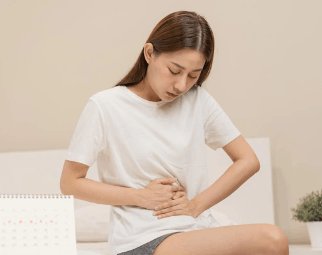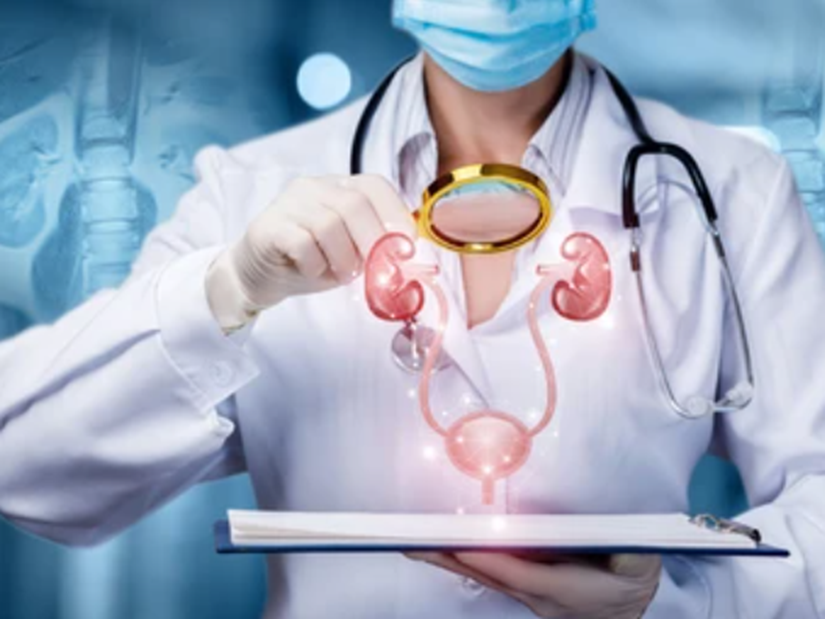Interstitial Cystitis: Causes, Cures and Do I Have It?
.png?v=1673872465367)

Related products
What is interstitial cystitis?
Interstitial cystitis (IC), also known as bladder pain syndrome (BPS), is a chronic bladder health issue. It is described as pain, pressure, or discomfort in the suprapubic or bladder area. People with interstitial cystitis have an irritated and inflamed bladder wall (sore and red). This inflammation can scar or stiffen the bladder. Some patients have bladder walls that may bleed slightly, and some get sores in the bladder lining. These are accompanied by lower urinary tract symptoms which have been present for over six weeks without having an infection or other exact causes.
What are the symptoms of interstitial cystitis?
Symptoms vary from mild to severe. Some patients may have symptoms that come and go, while others have that don't go away. Female patients may experience pain during sex, while males may have pain during orgasms. The classic symptoms of IC are:
-
Intense urinary frequency. IC is often characterized by urinary frequency (the need to pass urine more often than usual). Meanwhile, patients with IC frequently urinate daily and at night. This habitual behaviour of getting up at night to urinate is medically termed nocturia.
-
Urgency. The urge to urinate is another common IC symptom that can come along with urinary incontinence. Most patients experience a persistent urge to urinate, even immediately after voiding. A patient may be unaware of this or perceive it as an issue to be concerned about.
-
Suprapubic pain. Patients experience bladder pain (often with pressure) that worsens as the bladder fills. For men, this pain may present in the scrotum, penis or testes, while women might experience pain around the vagina or vulva. The pain may be continuous or may come and go.
These symptoms may be wholly or partially relieved by voiding. Less common symptoms include:
-
Haematuria. It refers to the presence of blood in a patient's urine.
-
Dyspareunia. The chronic or repeated genital discomfort that occurs soon before, during, or just after sexual intercourse is referred to by its medical title, genital dysesthesia.
Want to learn more about bladder infections? Read about the key bladder infection symptoms here.
Who has interstitial cystitis?
The lack of a standard technique to diagnose IC leads to the indefinite estimation of the number of affected people. Generally, IC is 2 to 3 times more common in women than in men. On average, people start having problems in their 40s; hence, the risk of developing them increases as a person ages.
Currently, around 1 to 4 million men and 3 to 8 million women exhibit IC symptoms. But this difference between men and women may not be as precise since some men are occasionally diagnosed with "prostatitis" or since similar conditions with different names may have IC. At present, no evidence supports the claim that stress causes IC. However, it is well-known that physical or mental stress can worsen the symptoms of interstitial cystitis.
What causes interstitial cystitis?
Doctors are unable to determine the exact cause of interstitial cystitis. One thing they are confident about is that bacterial or viral infections are not the cause. Experts may not have completely understood the origin of IC, but they relate it to such medical conditions as:
-
Abnormalities in mast cells are a specific type of inflammatory cells that releases histamine and other chemicals that lead to the symptoms.
-
Allergies.
-
Autoimmune disease.
-
Defects in the lining of the bladder
-
Presence of abnormal substances in the urine.
-
Vascular (blood vessel) disease.
-
Unidentified infections.
No specific behaviours, such as smoking and drinking alcohol, are proven to increase the risk of developing IC symptoms. There may be an increased risk when you have a family member with IC. Since IC patients may have a substance in their urine that inhibits the cell growth in the bladder tissue, some may be more likely to get IC after an injury to the bladder, such as an infection.
How is it diagnosed?
Interstitial cystitis is a diagnosis of exclusion. Painful bladder symptoms characterize it without infection or other identifiable conditions. Diagnosis includes:
-
Symptoms history
-
Urine culture to rule out bacterial infection
-
Tests to exclude other conditions, such as
-
Bladder cancer
-
Pelvic inflammatory disease
-
Sexually transmitted disease
-
-
Cystoscopy with hydrodistension under general or regional anaesthesia to rule out
-
Bladder calculi
-
Kidney disease
-
Radiation cystitis
-
Tuberculosis
-
Learn what to do if you have sudden stabbing pain in your pelvic area by reading our article on the Health Hub.
How can interstitial cystitis impact your life?
Interstitial cystitis can lead to several complications, including:
-
Reduced bladder capacity. Interstitial cystitis can stiffen the bladder wall, which enables your bladder to hold less urine.
-
Lower quality of life.
-
Sexual intimacy problems. Frequent urination and pain may affect your relationships. Sexual intimacy may also suffer since both men and women experience pain during sexual intercourse.
-
Sleep disturbances. IC demands waking up and getting out the bed several times a night to respond to the need to urinate.
-
Issues with self-esteem and social embarrassment
-
Emotional troubles. Chronic pain and interrupted sleep due to interstitial cystitis may cause emotional distress and lead to anxiety and depression.
How is interstitial cystitis (IC) treated?
There is no definite cure for CI, but there are many ways to treat it. No guarantee can tell who will respond best to specific treatments. Symptoms of interstitial cystitis may resolve or may become more severe. Despite disappearing, symptoms may come back after days, weeks, months, or as long as some years. The objective of IC treatments is mainly to relieve symptoms. Doctors will help decide the most suitable treatment for the patient.
The treatments for interstitial cystitis can include:
-
Bladder instillations. This treatment refers to filling the bladder with dimethylsulfoxide (DMSO) or other agents. A small catheter or tube is inserted into the urethra to fill the bladder with medication.
-
Bladder stretching/hydrodistension. Bladder stretching or hydrodistension is a procedure that is performed in the operating room under anaesthesia. The bladder is filled with sterile water to distend (dilate) the bladder, thereby increasing the volume of urine you can hold.
-
Pharmacologic intervention. Patients with more severe symptoms may take Elmiron® (pentosan polysulfate sodium). Other agents that may provide relief are tricyclic antidepressants, which have analgesic properties such as:
-
Elavil® (amitriptyline)
-
Anti-inflammatory drugs
-
Antihistamines
-
Antispasmodic drugs
-
Muscle relaxants
-
-
Surgery. Surgery may be used as a last resort when all other treatments do not relieve symptoms. Surgical procedures such as urinary diversion and augmentation cystoplasty can cause severe complications and may prove ineffective for IC pain.
Living with interstitial cystitis
The above treatments should provide some relief from interstitial cystitis. However, there are also things you can do yourself to relieve symptoms.
-
Diet. Since some foods or drinks can worsen symptoms, it is practical to note what you eat and drink to know if any foods or beverages cause or worsen symptoms. For patients with IC, acidic foods may upset the bladder. In this case, your doctor may advise you to take an antacid with meals to lessen the amount of acid that gets into the urine. You may also have to remove specific foods from your diet, such as:
-
Alcohol
-
Artificial sweeteners
-
Caffeinated and carbonated beverages
-
Chocolate
-
Citrus
-
-
Exercise. Physical activities help ease the symptoms of IC, such as walking, cycling, and gentle stretching.
-
Healthy stress management: Due to its nature to trigger and worsen symptoms, learning stress reduction methods and relaxing from time to time may make living with IC easier.
-
Physical therapy. People with interstitial cystitis can experience painful spasms of pelvic floor muscles. To relieve muscle spasms, you can learn exercises from a doctor to strengthen and relax your pelvic floor muscles, which hold the bladder in place and help control urination.
-
Bladder training. Bladder retraining is a treatment to overcome the habit of frequent urination by helping you keep urine for a more extended period and thereby urinate less often. You can train your bladder by heading to the restroom at scheduled times and employing relaxation strategies.
-
TENS (transcutaneous electrical nerve stimulation). People with IC can use a TENS machine to set mild electrical pulses into their bodies via special wires. The increased blood flow toughens the muscles that help control the bladder while releasing hormones that block pain.
-
Support group. Most importantly, you should join a support group. The support of family, friends and other people with interstitial cystitis is a great help in coping. People who are knowledgeable about interstitial cystitis and have practised their care do better than those who do not. A support group can provide helpful tips and additional information for you and your family.
Is interstitial cystitis curable?
IC symptoms can recur despite the remission of the disease for some time. The causes of its recurrence are unknown, as are the ways to prevent recurrences. Nevertheless, patients can try the following:
-
continuing the medical treatments even after remission
-
not eating or drinking certain foods and beverages that may irritate the bladder
-
avoiding stress and activities that may aggravate IC
Final words
Interstitial cystitis is a rare chronic debilitating condition that primarily affects middle-aged women. Many questions remain unanswered concerning the epidemiology of IC and its prevention and treatment. Its exact aetiology remains mysterious; it is clear that much research needs to be done to provide a deeper understanding of the various current etiological theories. A wide variety of therapies is already available, and many more are under trial. But while searching for answers continues, patients living with IC suffer its frustrating effects.
To learn more about cystitis and other possible urinary tract infections, read our women's health hub by clicking here.














 Rated Excellent by 26,523+ Reviews
Rated Excellent by 26,523+ Reviews